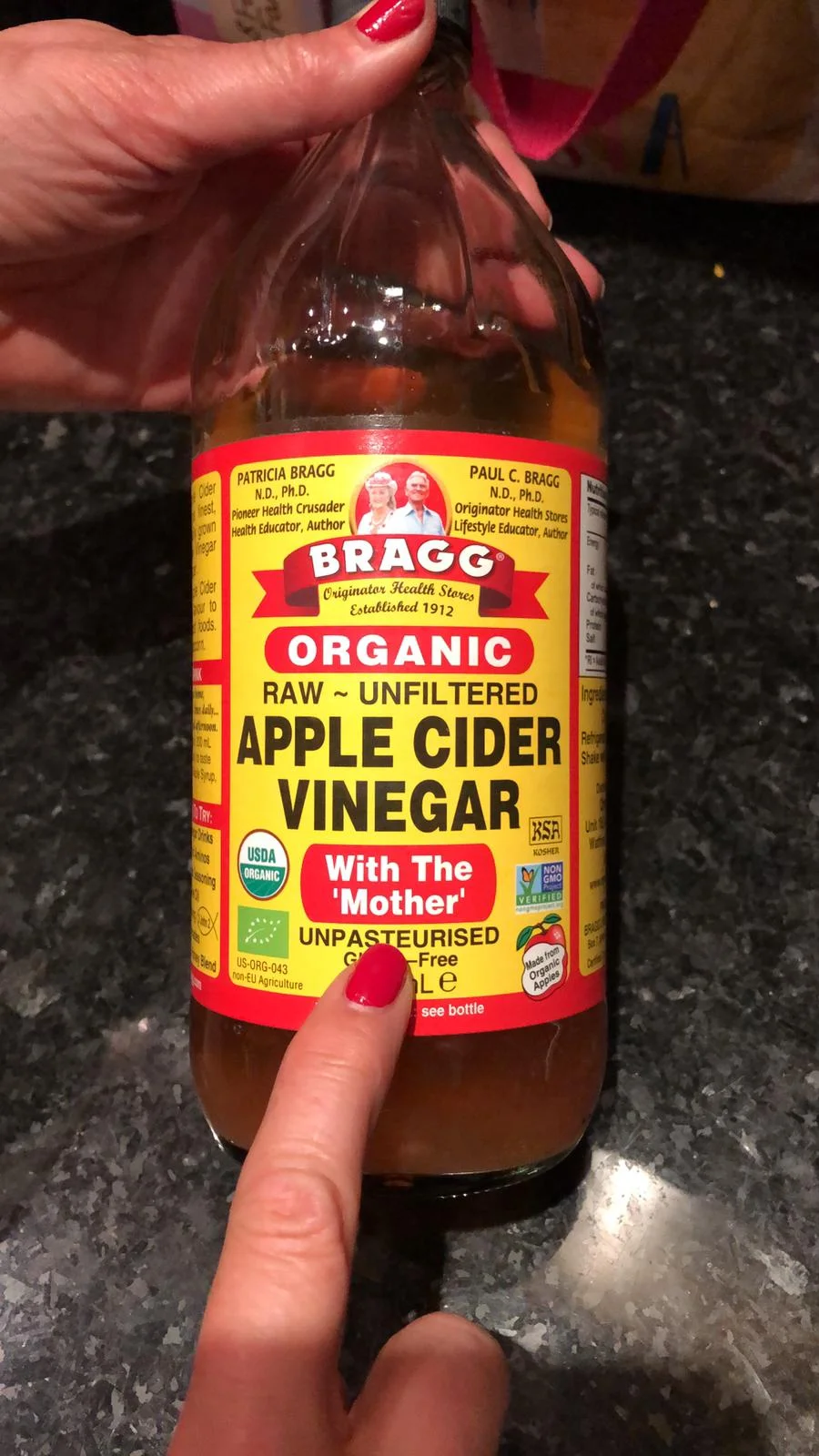Benefits of Apple Cider Vinegar: True Superfood or Trend?
Visit any health food store go onto Facebook, Instagram or Pinterest and apple cider vinegar (ACV) is pinned as a cure-all for almost every health ailment, but does ACV really have all the health benefits it’s recommended for, or is it all bluff? Read your Woking based Personal Trainer and Nutritionist Carol Winterborne’s view.
Before we get into what science has to say about ACV, let’s look at what it is, and why it’s called a superfood in the first place. Carol Winterborne, Woking based Personal Trainer and Nutritionist has her view.
So, what is Apple Cider Vinegar?
As the name suggests it is made from apples. To turn apples into vinegar, it needs to be combined with yeast, which starts the fermentation process.
Making ACV is a two-step process.
1. the yeast breaks down the fructose (sugar) in apples and turns it into alcohol, which is called fermentation.
2. Then the bacteria produced during the fermentation process further breaks down the alcohol into a compound called acetic acid.
Acetic acid is the active ingredient found in all vinegars, the sour taste and smell. Studies suggest acetic acid is the reason that ACV is said to have so many natural health benefits. Acetic acid has mycobactericidal activity, which means it can prevent certain types of harmful bacteria from growing and multiplying.
So, if every type of vinegar contains acetic acid, what makes ACV so special?
Well the important factor that sets ACV apart from other types of vinegar is that it contains something called “the mother”. It’s the cobweb-like substance floating near the bottom of the bottle and is found in the raw or unfiltered AVC. It is essentially a ball of acetic acid, cellulose (fibre), enzymes, and bacteria where all the “good stuff” is concentrated. “The mother” is what gives ACV its murky, cloudy appearance, this will not be found in pasteurised versions.
Health benefits
It can be used to help weight loss, one study found that having ACV with meals increased the participants' satiety (i.e., feelings of fullness) however, ACV isn't going to be enough to melt those pounds and turn you into a healthy person by itself. But combined with a proper diet and exercise, it does create a tangible effect, which can lead to some good results.
ACV can also influence blood sugar levels it is one of the most important (and well-researched) benefits to date. It lowers blood sugar levels and that is great for type 2 diabetics, who often struggle with chronically elevated blood sugar. It is said that sugar is released more slowly and evenly in the blood, leading to a more efficient insulin response.
Another major health benefit is for those who follow a vegetarian or vegan diet, as plant iron (non-heme iron) is more difficult for the body to absorb than heme iron, which comes from animal products. So toss your veggies in AVC which will then help you to absorb their essential vitamins and minerals.
We also know that ACV does contain pectin, which is a type of fiber that acts as a prebiotic and helps keep your digestive system healthy. Some people use it to help soothe acid reflux and to aid with protein digestion before heavy meals, however we don’t have scientific data to support this thus far.
Some research shows that ACV can boost immunity as it has antiviral and anti-inflammatory properties, which makes it a good natural remedy to have around during cold and flu season. It can also be used as a preventative measure, for things like sore throats.
ACV could also decrease some of the key risk factors of heart disease. It may lower cholesterol and triglyceride levels. Multiple studies of rats confirmed the link between ACV consumption and improved heart health. More research needs to be done to see if ACV will help heart disease in humans. But one study has found that women who used apple cider vinegar in their salad dressings reduced their risk of heart disease.
One word of warning: It packs a strong taste, but its effects on the body are incredibly mild. It's extremely safe if you limit your consumption to just a few tablespoons a day. If you’re planning to drink it straight or add it to your juice recipes, always use a straw. The acid in undiluted ACV is extremely strong and can weaken your tooth enamel, leaving you more prone to cavities.

